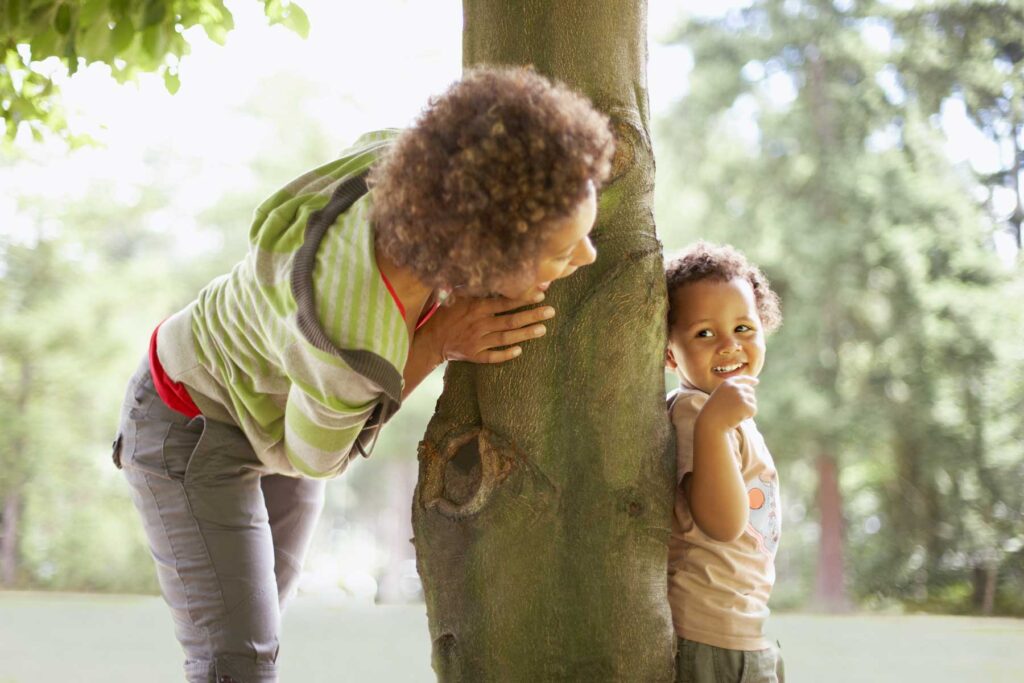
Just a reminder that communication is not only about their ability to speak, try looking for their responses in non-verbal cues and gestures until they are able to do more! Here are 6 communication games for toddlers at home to help improve their language skills while still having fun with them!
6 Best Communication Games for Toddlers:
-
Songs with Movement
While these aren’t necessarily a game they’re guaranteed to be so much fun for your little one! “Wheels on the bus” and “Head Shoulders Knees and Toes” are both great songs to sing with your child to help them develop communication skills.
Communication games for toddlers help to link language to gestures it increases their retention of the vocabulary involved. Repetition is crucial for children to understand new things so songs that repeat themselves are super helpful! They’re gonna love these songs and will want to hear them over and over again.
-
Peek-a-boo
This is a classic. Children love to play it with you and with each other! The repetition in this game is really beneficial for your toddler as well. They pick up the rhythm of questions and answers through this game, which helps them learn the pragmatics of language. By introducing the rules of conversation through a very basic game, it’s likely that they’ll have an easier time understanding further communication rules later!

-
Copycat
Let them mimic your words, faces, and movements to help them engage in reciprocal exchanges. You can help them practice all of their developing skills with a game like this, including language! Try going syllable by syllable through complicated words, making silly faces, maybe even try cleaning up to see if they’ll follow. It may not be the longest game, but it will help them connect with you and practice some of their skills in the meantime.
-
“Where is/are…”
Communication games for toddlers can be as simple as asking your toddler where things are! Start by asking them to show you where their tummy or nose is, and then move on to things around the room! Knowing the proper terminology for things they see and interact with every day helps to solidify their vocabulary and improve their understanding of common words. They love to show off what they know!
-
One word stories
This one requires a little more vocabulary to play so it may not be for all of your little ones. Try starting a story using only one word and take turns creating the story. You’re only allowed to use one word at a time. Try to guide them through to create a story that actually makes sense. Write it down as you go so you can read it through together when you’re done! Giggles are guaranteed.
-
Hide and seek
This game is great to help them with their number sense! Practice counting can help jumpstart their early math skills which can help them understand more complicated mathematical concepts later in their life! It also gives an opportunity for them to use phrases such as “ready or not, here I come!” to give them some language practice as well.

All of these communication games for toddlers are meant to help encourage your child to broaden their communication skills without forcing them to participate in something based in curriculum. By making language fun and accessible for your toddler it will help to increase their natural curiosity and make them want to keep learning!
Once they start developing their ability to read, try to encourage them by buying books about topics that interest them. Anything we can do as parents to help them learn and practice their skills at home will assist them in developing their language and literacy skills as early as possible which helps them to continue their progress as they get older.
If you really want a head start, try learning sign-language to help them communicate as early as possible! We can do so much for our children through such little moments, try any of these games as a start!

